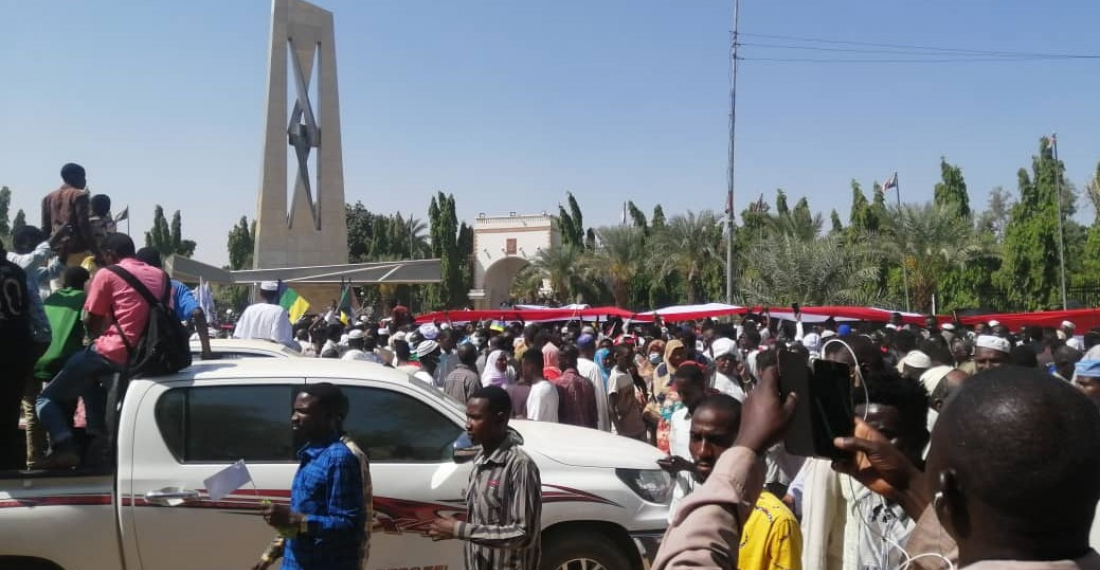Anti-government demonstrators took to the streets of Khartoum for the second day running to demand the removal of Sudan's transitional joint civil-military Sovereign Council and demanding it be replaced by a total military rule.
Demonstrators were allowed to reach the gates of the presidential palace as there was little police presence. The demonstrators called for General Abdel Fattah al-Burhan, head of the armed forces and Sudan's Sovereign Council, to instigate a coup and seize control of the country.
Sudan’s Sovereign Council has ruled since the toppling of President Omar al-Bashir in 2019. However, the country has been thrown into a political crisis since last month when a pro-Al-Bashir faction in the army attempted a coup.
Since last month, military leaders have also demanded reforms to the civilian Forces of Freedom and Change (FFC) coalition which led the anti-Bashir protests and later formed a key part of the transitional government.
In a televised speech last Friday, prime minister Abdalla Hamdok said that there were “deep splits among civilians and among the military, as well as between the civilians and the military,”
“The serious political crisis that we are living in right now, I would not be exaggerating to say, is the worst and most dangerous crisis that not only threatens the transition but threatens our whole country.”
Hamdok laid down a vision to solve the crisis via dialogue and working through institutions rather than by escalating the problems.
The main argument of the protestors is that the current transitional government is failing to speed up economic reforms that are required to address issues such as fuel subsidies and prices of consumer goods. International financial support for Sudan has been tied with reforms yet the local population argues that measures such as the slashing of fuel subsidies and a managed floatation of the Sudanese pound are tough measures. Other underlying issues are justice, military restructuring, and the dismantling of the financial apparatus of the former regime.






